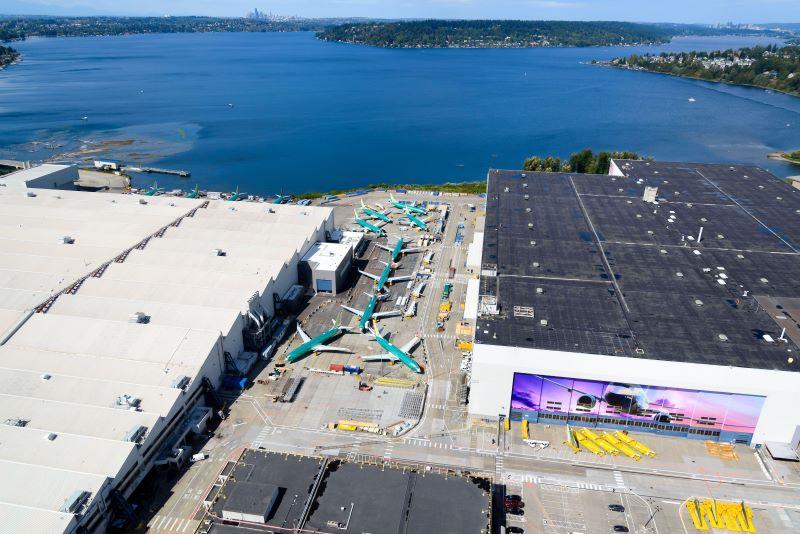Daily Memo: Boeing’s 737 Ramp-Up Plans Versus 737 MAX Certification’s Slow Progress

Amid a gradual easing of the most critical supply chain issues that have handicapped the company’s production line ramp-up plans, Boeing is reactivating the long dormant “east” 737 assembly line in Renton’s Building 4-82.
The line will join the existing “west” and “center” lines later in 2023 as part of the company’s gradual push toward a notional year-end target of around 38 per month.
The next rate jump will happen “very soon,” Boeing Commercial Airplanes President Stan Deal said following a recent appearance at the Wings Club in New York.
Meanwhile, Boeing is pressing on with efforts to win FAA approvals of its last two 737 MAX variants, the 737-7 and 737-10. While certification of either isn’t necessary to support Boeing’s production ramp-up, the ability to build and deliver all four planned 737 MAX family variants sure would help.
The two models account for nearly 30% of Boeing’s 4,269-aircraft 737 MAX backlog, Aviation Week Network’s Fleet Discovery shows. While the 737-7 will beat the 737-10 into service, the latter is by far the more important variant, with more orders and a broader customer base (Southwest Airlines accounts for 210 of the 293 737-7 orders.)
Unfortunately for Boeing, the 737-10 also figures to be even more difficult to certify because of several notable design changes. Chief among them: a longer landing gear, a third angle-of-attack (AOA) data source, and switches that will allow crews to stop nuisance stick-shaker alerts without having to pull a circuit breaker.
The new 737 MAX variants are the first aircraft subject to new FAA reviews of human factors assumptions (HFAs) buried in system safety assessments, courtesy of a 2020 law targeting aircraft certification reform. The FAA is busily developing guidance to help industry comply with the new requirements. But the agency acknowledges the policy, likely to start out as an “issue paper,” will not be fully developed anytime soon.
“In support of the evaluation and validation of the underlying HFA of SSA supporting the 737 MAX RTS, the FAA drafted a project-specific issue paper, which will be applied to the Boeing Model 777-9 and future certification programs,” FAA Acting Administrator Billy Nolen told the National Transportation Safety Board (NTSB) in an August 2022 letter updating the agency’s progress on several related recommendations. “Although the issue paper was not ready for application to the existing Model 737-7 and 737-10 certification programs, the related background, guidance, and FAA regulatory position are effectively being applied.”
That leaves Boeing and the FAA working collaboratively to simultaneously develop and follow a new process. Worse, the law’s language prohibits FAA-designated representatives working for manufacturers under the Organization Designation Authorization process from validating any human factors-related assumptions within SSAs. Most of the 737-7’s certification work was done long before the law, prompted by fatal 737 accidents in 2018 and 2019, was passed. But since the model is not certified, all of the SSAs previously deemed sufficient within Boeing had to be revisited.
Boeing is offering little in the way of precise guidance on when either model will win FAA approval. CFO Brian West said at a recent investor conference 737-7 certification is expected in 2023, while the 737-10 would “likely” follow next year. While such generic language leaves wiggle room for both faster and slower timelines, betting on the 737-10’s approval any time before 2024 would be unwise.
Given the pace of the 737-7’s approval program and the changes in the 737-10—some of which will require new SSAs for FAA review—slippage beyond 2024 seems plausible. That would align the largest 737 MAX family member’s approval with the time frame Boeing plans to be cranking out 50-52 737s per month.
Better late than never.

